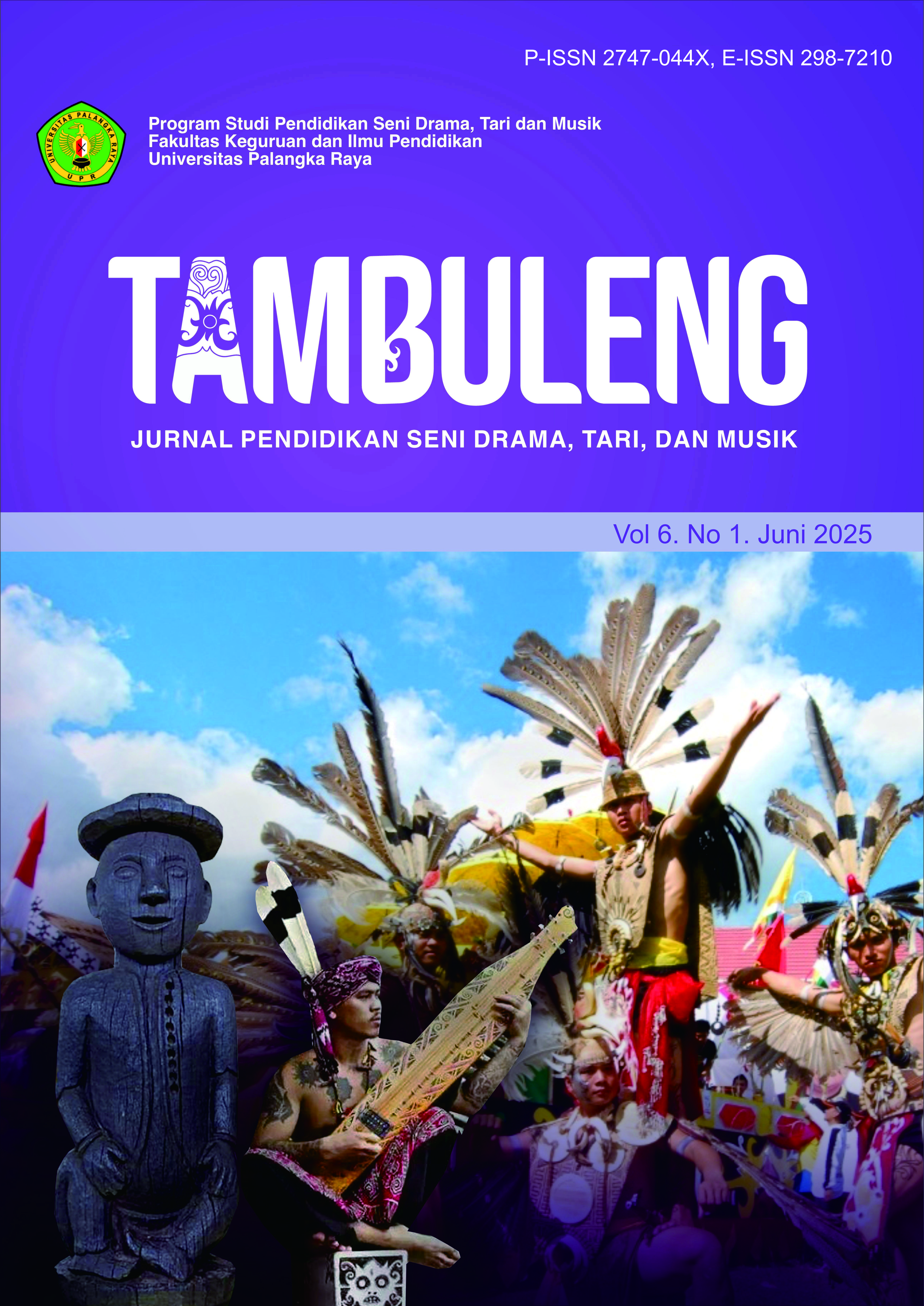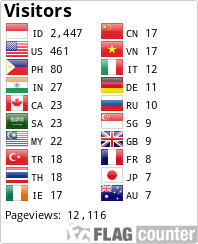Laowomaru: Kisah Samson Dari Pulau Nias sebagai Inspirasi Penciptaan Tari Kontemporer
DOI:
https://doi.org/10.37304/jt.v6i1.20790Keywords:
Laowomaru Kisah Samson, Pulau Nias, Penciptaan seni tariAbstract
The creation of the dance artwork raises the Laowomaru dance because the author wants to reintroduce the legendary story of the Nias tribe, so that the existing cultural values will not be lost. This work also conveys messages and motivation to the audience. Therefore, the author created a new contemporary dance piece to enable free movement with creativity according to the author’s abilities. The method used in this dance work employs Hawkins' creation theory, which is known in the context of art to emphasize that art creation involves several main stages, namely: Exploration, Improvisation, and Formation. The Laowomaru dance project: The Story of Samson from Nias Island aims to create a contemporary dance that visualizes the character of Laowomaru and introduces the legend to the younger generation while still being grounded in tradition. This dance benefits cultural preservation, introduces the Nias warrior figure, and serves as inspiration for other choreographers. The work was developed through the stages of exploration, improvisation, and formation based on Hawkins' dance creation theory, and analyzed using La Meri’s theory. There are 10 dancers from the students and university students of Palangka Raya. This dance uses 52 floor patterns, digital music with a duration of 12 minutes and 17 seconds, as well as costumes and makeup that reflect the cultural identity of Nias.
Downloads
References
Aprizal, Damri. (2016). Unsur-unsur Gerakan Pengantin Pada Upacara Pernikahan di Kota Palembang. Musik Tari. 30. Institut Seni Indonesia Surakarta.
Efen Di, Junarto. (2014). Barongan Jogo Rogo dalam Tradisi Selapan Dino. Seni Pertunjukan. 2. Universitas Semarang.
Hidayat, Venny Agustin. (2020). Gerak dan Rasa dalam Tari Merak Jawa Barat. Gerak. 106. Institut Seni Indonesia Yogyakarta.
Indrayuda, (2010). Fenomena Tari Kontemporer Dalam Karya Tari Mahasiswa Sendratasik UNP dan STSI Padang Panjang. Pengertian tari kontemporer. 67.
Kusmayati. (2014). Barongan Jogo Rogo dalam Tradisi Selapan Dino. Seni Pertunjukan. 2. Universitas Semarang.
La Meri, (2022). Bentuk Tari Selendang di Sanggar Helau Budaya Kabupaten Tangamus. Teori bentuk. 13-16. (Skripsi). Universitas Lampung.
Safrina, Novia. (2022). Bentuk Tari Selendang di Sanggar Helau Budaya Kabupaten Tangamus. Teori bentuk. 13-16. (Skripsi). Universitas Lampung.
Seriati, N,N., Wahyuni, T., Wulansari, P. (2020). Tradition as a Source of Dance Choreography Creation. Proceedings of the 4th International Conference on Arts and Arts Education (ICAAE 2020)
Taupik, Riska Putri. (2023). Upaya Peningkatan Pengetahuan dan Kreativitas Siswa Sekolah Dasar dalam Menyusun Pola Lantai Pada Pembelajaran Seni Tari. Pola lantai. 348. Universitas Negeri Padang.
Wulandari, Tiara. (2024). Analisis Bentuk Gerak Tari Nyireh Lima Barintit Muara Enim Sumatera Selatan. Gerak. 196. Universitas PGRI Palembang.
Yulianti. Seni tari. empat unsur utama dalam keindahan yaitu wiraga, wirama, wirasa dan wirupa. https://library.uir.ac.id/. Di akses pada 23 November 2024.
Downloads
Published
How to Cite
Issue
Section
License
Copyright (c) 2025 Jurnal Tambuleng: Pendidikan Seni Drama, Tari dan Musik

This work is licensed under a Creative Commons Attribution 4.0 International License.










